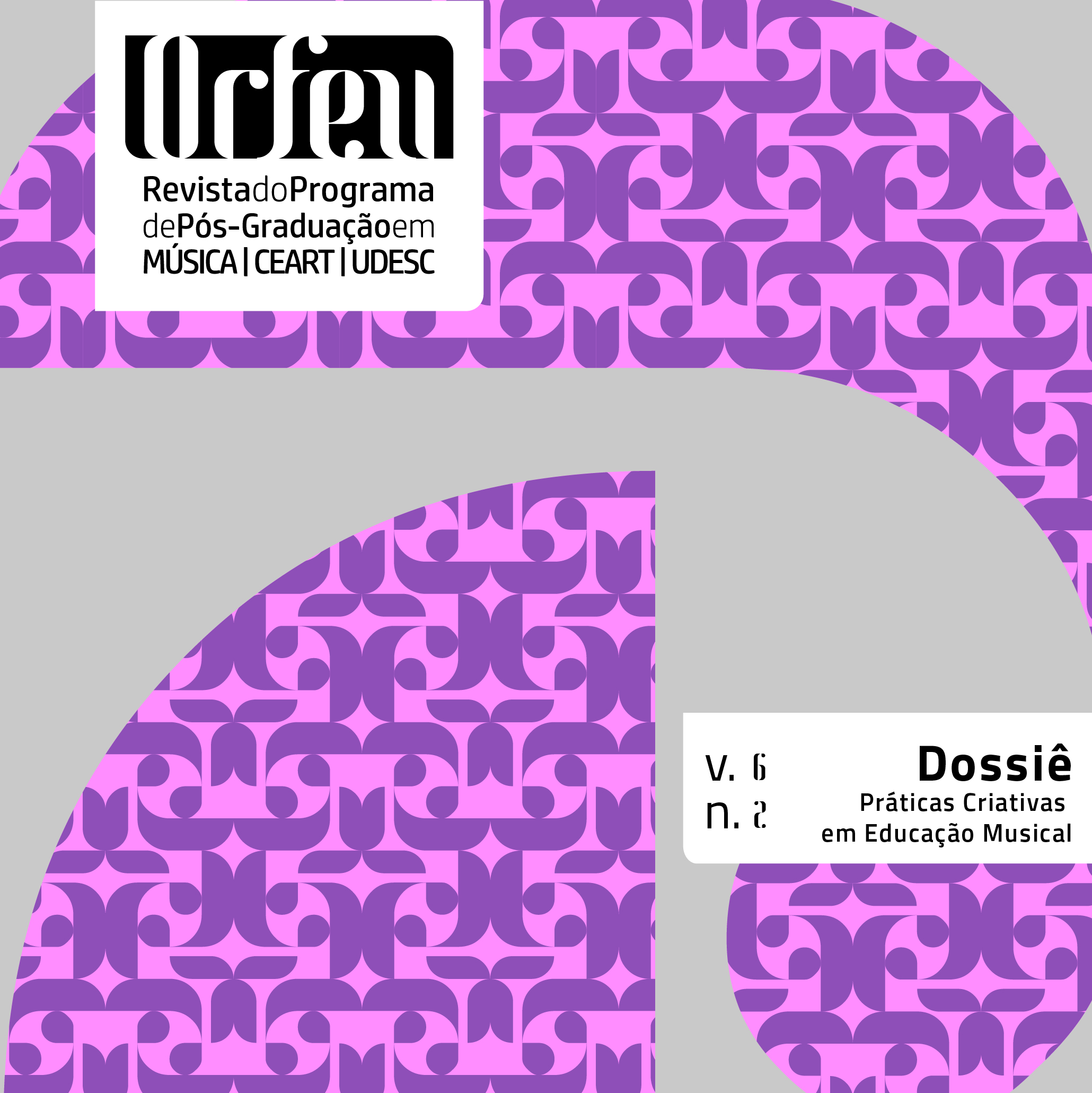Lições que a fênix nos traz: o eterno retorno
DOI:
https://doi.org/10.5965/2525530406022021010Palavras-chave:
Educação musical, Eterno retorno, Revisão histórica, Propostas atuaisResumo
Trata-se neste artigo das mudanças que ocorrem no mundo em diferentes épocas e discute-se a concepção de tempo mítico em relação ao tempo linear, como sugere Mircea Eliade, que vê na sociedade ocidental múltiplos exemplos do que ele denomina “eterno retorno”, isto é, a volta cíclica de fenômenos ocorridos em determinada época, a tempos posteriores. Como símbolo dessa ideia, traz-se a figura da fênix, pela sua capacidade de renascimento eterno. Pretende-se examinar alguns exemplos de educação musical ocorridas em diferentes momentos, esperando encontrar exemplos de retorno de antigas concepções de educação e de educação musical a outros lugares e tempos. No final, buscam-se exemplos de educadores musicais da atualidade por considerar suas atividades como respostas criativas à problemática vivida hoje e procura-se mostrar, também, que muitos dos procedimentos que eles adotam aproximam-se de concepções educacionais de épocas anteriores, de tal modo que torna-se difícil afirmar o que é realmente novo e o que é definitivamente antigo.
Downloads
Referências
ARIÈS, Philippe. História social da criança e da família. 2. ed. Rio de Janeiro: Editora Guanabara, 1981.
BRITO, Teca Alencar de. Hans Joachim Koellreutter: ideias de mundo, de música, de educação. São Paulo: Edusp, 2015.
BROSSES, Charles de. In: SCHOLES, Percy. The Oxford Companion to Music. Oxford: The Oxford University Press, 1978.
CHEVALIER, J.; GHERBRANT, A. Dicionário de símbolos. 9. ed. Rio de Janeiro: José Olímpio, 1995.
ELIADE, Mircea. Mito do eterno retorno. São Paulo: Mercuryo, 1992 [1949].
FERNANDES, José Nunes. Mil e uma atividades em oficinas de música: cadernos de exercícios. 1. ed. Rio de Janeiro: Edição do Autor, 2015.
FONTERRADA, Marisa Trench de O. De tramas e fios: um ensaio sobre música e educação. São Paulo: Editora da Unesp, 2005.
MATEIRO, Tereza e ILARI, Beatriz. Pedagogias em Educação Musical. Curitiba: Intersaberes, 2012.
MOREIRA, Tamya de O. R. Escola Nova e Educação Musical: um estudo através de imprensa pedagógica do entreguerras. 2019. Tese (Doutorado) ¬– Escola de Comunicações e Artes, Universidade de São Paulo, São Paulo, 2019.
NUNES, Clarice. Anísio Teixeira. Recife: Fundação Joaquim Nabuco, Editora Massangana, 2010.
PEREIRA, Kitty. Ensaio coral na pandemia. Destinatário: Marisa Fonterrada. [S. l.], 20 jan. 2021. 1 mensagem eletrônica. Informações a respeito dos seus corais.
ROGERS, Carl R. Tornar-se pessoa. São Paulo: Martins Fontes, 2009.
ROUSSEAU, Jean Jacques. Emílio. São Paulo: Martins Fontes, 2015.
SOËTARD, Michel. Johann Pestalozzi. Trad. Martha Aparecida Santana Marcondes, Pedro Marcondes, Ciriello Mazzetto. Org. João Luis Gasparin, Martha Aparecida Santana Marcondes. Recife: Fundação Joaquim Nabuco, Editora Massangana, 2010.
SCHAFER, R. Murray. O ouvido pensante. São Paulo, Editora Unesp.2001.
SCHAFER, R. Murray. A afinação do mundo. São Paulo: Editora da Unesp, 2008.
SCHAFER, R. Murray. OuvirCantar. São Paulo: Editora da Unesp, 2018.
Downloads
Publicado
Como Citar
Edição
Seção
Licença
Copyright (c) 2021 Marisa Trench Fonterrada

Este trabalho está licenciado sob uma licença Creative Commons Attribution 4.0 International License.






